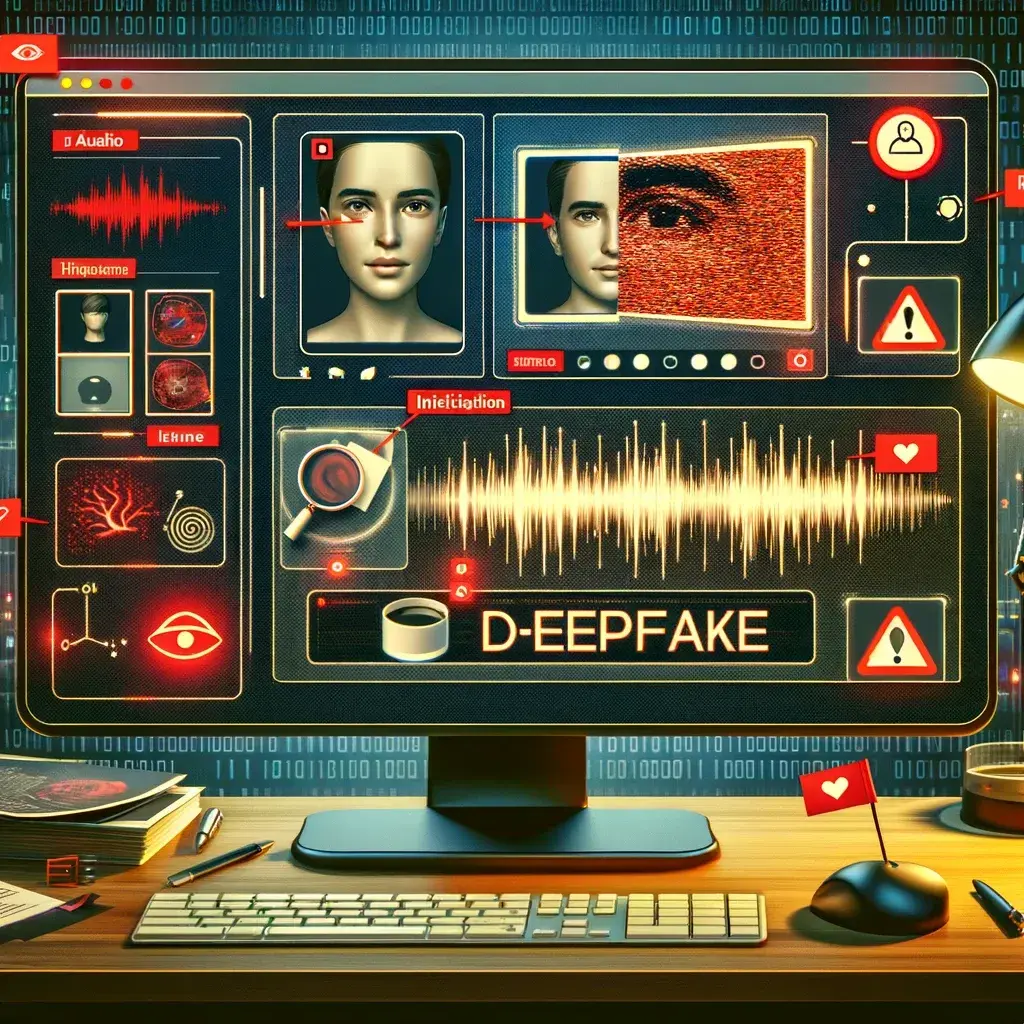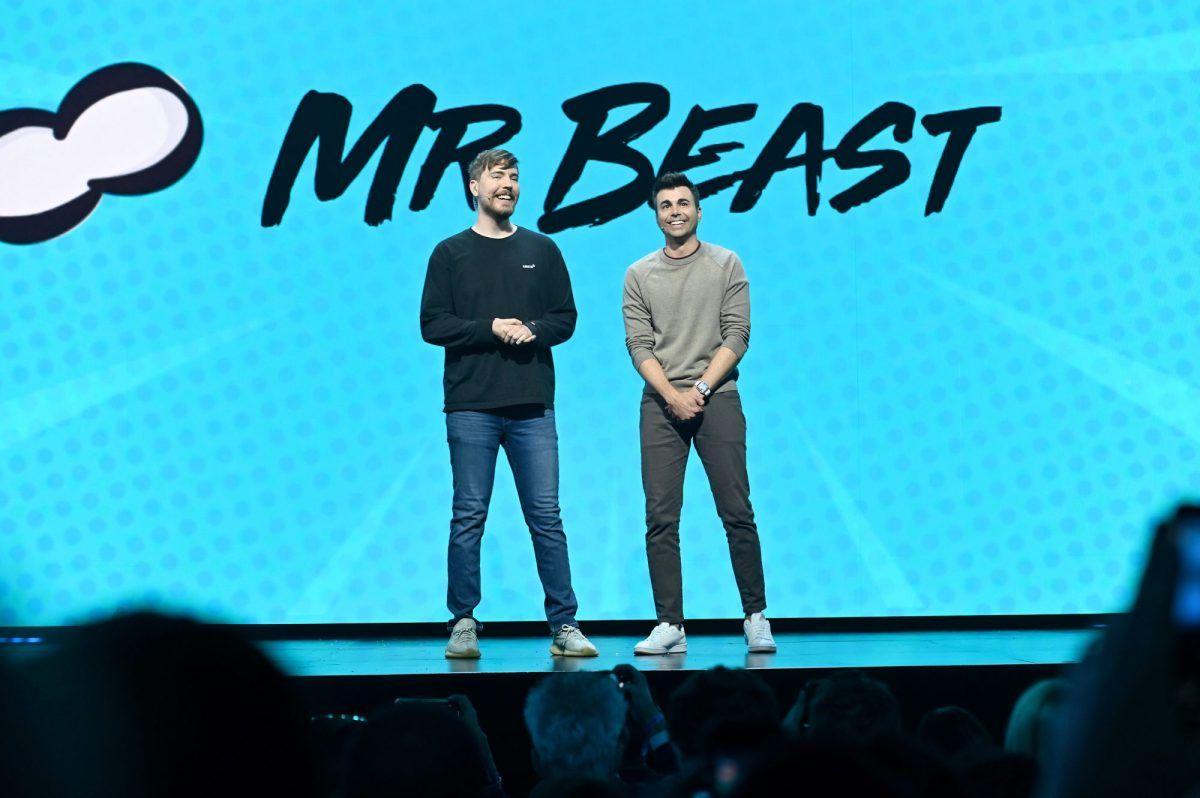Bollywood Celebrities Take Stand Against Deepfake Threat
2 Sources
2 Sources
[1]
(Deep)Fake it till you make it? Bollywood celebrities won't hear of it
Bollywood celebrities are increasingly turning to the Copyright Act and Information Technology Act to combat the misuse of their personality rights through AI-generated deepfakes. Legal experts highlight the lack of specific laws addressing this issue, prompting courts to use existing IPR laws. The Indian government plans to tackle deepfakes through the proposed Digital India Bill.An increasing number of Bollywood celebrities are turning to the Copyright Act and the Information Technology Act to prevent abuse of their personality rights through generative artificial intelligence (AI), particularly deepfakes, in the absence of specific laws to combat this escalating concern. Legal experts say the proliferation of deepfakes, a type of generative AI, poses significant threats to the personality rights of celebrities. Deepfake content, generated by AI, appears genuine but is entirely fabricated. In a landmark intellectual property rights (IPR) case involving singer Arijit Singh, the Bombay High Court recently granted an ad-interim exparte injunction against multiple defendants, including Codible Ventures LLP, for the unauthorised use of AI and voice-cloning technologies to replicate the singer's voice. Indian courts have similarly issued injunctions in cases filed by celebrities such as Amitabh Bachchan, Anil Kapoor, and Karan Johar, aimed at protecting their personality rights. These rulings recognised their celebrity status and prohibited defendants from using their voice, image, likeness, or other personal attributes without permission. Alpana Srivastava, partner at Desai & Diwanji, observed a growing trend of cases where Bollywood celebrities are looking to protect their IPR from deepfakes and AI exploitation. She pointed out that India lacks sufficient laws to address the issue of deepfakes, with only Sections 66(c) and 66(d) of the IT Act 2000 covering identity theft and cheating by impersonation using computer resources. "Deepfakes can infringe on performers' rights if manipulated content reproduces an artist's performance through fake means," Srivastava explained. Sidharth Chopra, practice lead in telecom, media, and technology at Saikrishna & Associates, said AI-generated voices and likenesses can also lead to issues under the Copyright Act. "The legal challenges brought by AI disruption will have to be addressed by courts using existing IPR laws until new legislation is introduced," he added. The Indian government is reportedly planning to address the rising threat of deepfake content through the proposed Digital India Bill, which will replace the IT Act 2000. Globally, the US Federal Trade Commission (FTC) has proposed regulations for tackling deepfake content. Hollywood talent agency William Morris Endeavor (WME) has partnered with AI platform Vermillio to safeguard creators from intellectual property theft and assist them in monetising their image and likeness. The agency, which represents Hollywood stars like Ben Affleck and Jessica Alba, also manages Bollywood actors Ranveer Singh and Alia Bhatt. Ankita Singh, managing partner of Sarvaank Associates, stressed on the need for strong IP protection to prevent digital abuse. She suggested that counter-technologies, blockchain, cybersecurity, and trace-and-track models could play a crucial role in addressing the threat posed by deepfakes. Srivastava said there is a need to develop legal and technological infrastructure to effectively battle AI-assisted deepfakes. "Stricter accountability must be imposed on social media platforms that enable AI-assisted fakes, alongside robust systems for detecting and removing such content," she said.
[2]
(Deep)Fake It Till You Make It? Celebs Won't Hear of It
An increasing number of Bollywood celebrities are turning to the Copyright Act and the Information Technology Act to prevent abuse of their personality rights through generative artificial intelligence (AI), particularly deepfakes, in the absence of specific laws to combat this escalating concern.An increasing number of Bollywood celebrities are turning to the Copyright Act and the Information Technology Act to prevent abuse of their personality rights through generative artificial intelligence (AI), particularly deepfakes, in the absence of specific laws to combat this escalating concern. Legal experts say the proliferation of deepfakes, a type of generative AI, poses significant threats to the personality rights of celebrities. Deepfake content, generated by AI, appears genuine but is entirely fabricated. In a landmark intellectual property rights (IPR) case involving singer Arijit Singh, the Bombay High Court recently granted an ad-interim exparte injunction against multiple defendants, including Codible Ventures LLP, for the unauthorised use of AI and voice-cloning technologies to replicate the singer's voice. Indian courts have similarly issued injunctions in cases filed by celebrities such as Amitabh Bachchan, Anil Kapoor, and Karan Johar, aimed at protecting their personality rights. These rulings recognised their celebrity status and prohibited defendants from using their voice, image, likeness, or other personal attributes without permission. Alpana Srivastava, partner at Desai & Diwanji, observed a growing trend of cases where Bollywood celebrities are looking to protect their IPR from deepfakes and AI exploitation. She pointed out that India lacks sufficient laws to address the issue of deepfakes, with only Sections 66(c) and 66(d) of the IT Act 2000 covering identity theft and cheating by impersonation using computer resources. "Deepfakes can infringe on performers' rights if manipulated content reproduces an artist's performance through fake means," Srivastava explained. Sidharth Chopra, practice lead in telecom, media, and technology at Saikrishna & Associates, said AI-generated voices and likenesses can also lead to issues under the Copyright Act. "The legal challenges brought by AI disruption will have to be addressed by courts using existing IPR laws until new legislation is introduced," he added. The Indian government is reportedly planning to address the rising threat of deepfake content through the proposed Digital India Bill, which will replace the IT Act 2000. Globally, the US Federal Trade Commission (FTC) has proposed regulations for tackling deepfake content. Hollywood talent agency William Morris Endeavor (WME) has partnered with AI platform Vermillio to safeguard creators from intellectual property theft and assist them in monetising their image and likeness. The agency, which represents Hollywood stars like Ben Affleck and Jessica Alba, also manages Bollywood actors Ranveer Singh and Alia Bhatt. Ankita Singh, managing partner of Sarvaank Associates, stressed on the need for strong IP protection to prevent digital abuse. She suggested that counter-technologies, blockchain, cybersecurity, and trace-and-track models could play a crucial role in addressing the threat posed by deepfakes. Srivastava said there is a need to develop legal and technological infrastructure to effectively battle AI-assisted deepfakes. "Stricter accountability must be imposed on social media platforms that enable AI-assisted fakes, alongside robust systems for detecting and removing such content," she said.
Share
Share
Copy Link
Bollywood stars are raising awareness about the dangers of deepfake technology in the entertainment industry. Celebrities are calling for legal action and increased public awareness to combat this growing threat.

Deepfake Technology Raises Alarm in Bollywood
The Indian film industry, popularly known as Bollywood, is facing a new challenge in the form of deepfake technology. This artificial intelligence-powered tool, capable of creating hyper-realistic fake videos and images, has become a growing concern for celebrities and industry professionals alike
1
.Celebrities Speak Out
Several high-profile Bollywood actors have recently fallen victim to deepfake manipulations, prompting a strong response from the industry. Alia Bhatt, a leading actress, expressed her shock and disappointment when a deepfake video featuring her face superimposed on another person's body went viral on social media platforms
2
.Actress Rashmika Mandanna also faced a similar situation when a deepfake video of her circulated widely online. The incident sparked outrage and led to increased discussions about the potential misuse of this technology
1
.Legal and Ethical Concerns
The rise of deepfake technology has raised significant legal and ethical questions within the entertainment industry. Celebrities and their management teams are now grappling with the challenge of protecting their image rights and preventing unauthorized use of their likeness
2
.Legal experts argue that existing laws may not be sufficient to address the complexities of deepfake technology. There are growing calls for new legislation specifically tailored to combat the creation and distribution of malicious deepfake content
1
.Related Stories
Industry Response and Initiatives
In response to these challenges, the Bollywood industry is taking proactive steps to address the deepfake threat. Several production houses and talent management agencies are investing in advanced digital watermarking and content authentication technologies to protect their artists' images and videos
2
.Additionally, industry bodies are organizing workshops and awareness campaigns to educate both celebrities and the public about the risks associated with deepfake technology. These initiatives aim to help people identify manipulated content and understand the potential consequences of creating or sharing such material
1
.Public Awareness and Media Literacy
Experts emphasize the importance of media literacy in combating the spread of deepfake content. They argue that educating the public about the existence and capabilities of this technology is crucial in mitigating its negative impact
2
.Social media platforms are also being called upon to play a more active role in detecting and removing deepfake content. Some platforms have already implemented AI-powered tools to identify and flag potentially manipulated videos and images
1
.References
Summarized by
Navi
Related Stories
Senators Introduce Bill to Combat AI-Generated Deepfakes and Protect Individuals
01 Aug 2024

Bombay High Court Restrains AI Platforms from Unauthorized Voice Cloning of Arijit Singh
01 Aug 2024

Experts warn no AI can detect deepfakes as India grapples with national security threat
18 Feb 2026•Policy and Regulation

Recent Highlights
1
Google Gemini 3.1 Pro doubles reasoning score, beats rivals in key AI benchmarks
Technology

2
Meta strikes up to $100 billion AI chips deal with AMD, could acquire 10% stake in chipmaker
Technology

3
Pentagon threatens Anthropic with supply chain risk label over AI safeguards for military use
Policy and Regulation





